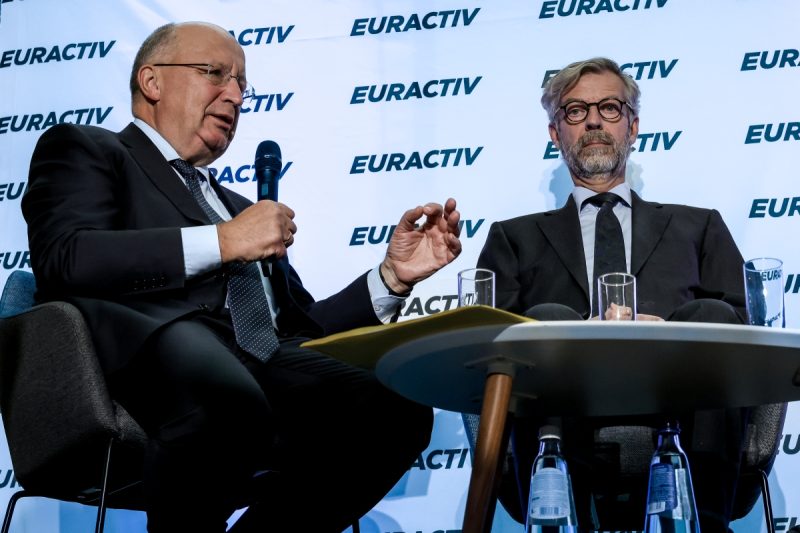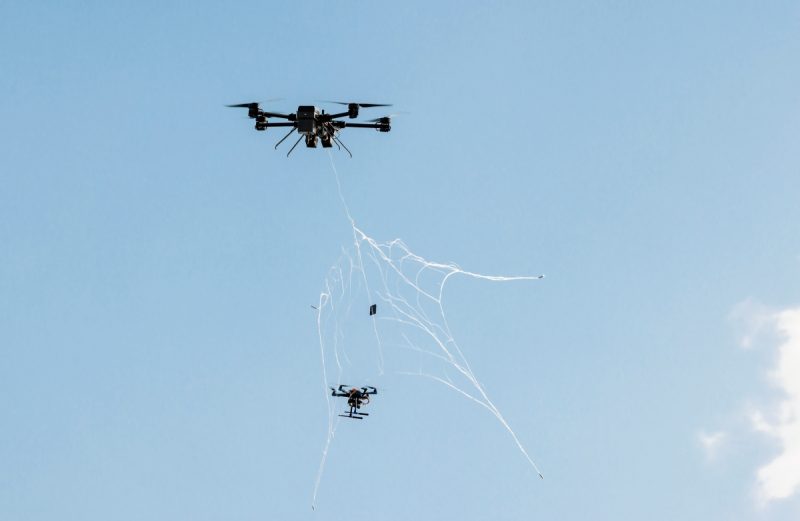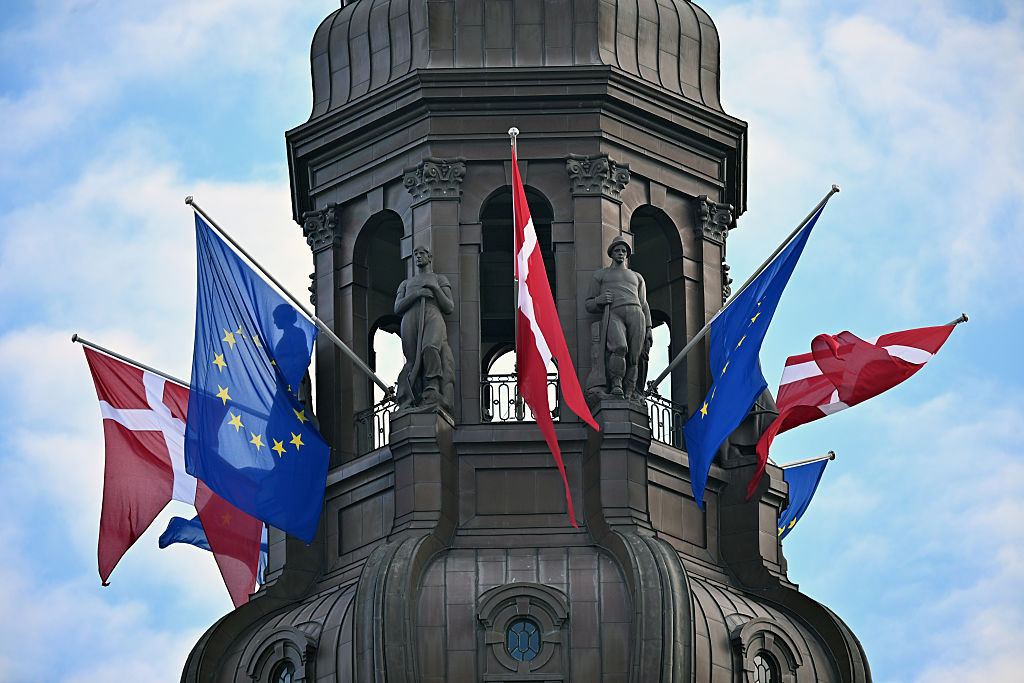COPENHAGEN – The EU’s four largest economies are urging caution on a new plan to counter drone incursions, exposing a rift with leaders from the Baltic and Scandinavian regions.
Arriving at Wednesday’s informal European summit in Copenhagen, EU leaders presented very different views on the European Commission’s plan to enhance airspace security along the eastern flank, known as the “drone wall”.
France’s Emmanuel Macron, typically one of the first to back EU defence-industrial projects, struck a noticeably cautious tone. The drone wall is “more complex” than simply setting up a “dome” or a “wall,” he told reporters, stressing the project rollout should not be rushed.
“We need advanced warning systems to better anticipate threats, and develop them together,” he said, before ticking off his priorities. “We need to deter with long-range firing capabilities, European ballistic capabilities, we need more solar defence, and anti-drone defence systems.”
German Chancellor Merz avoided the subject entirely ahead of Wednesday’s talks, focusing instead on competitiveness and continued Ukraine support.
Earlier this week, his Defence Minister, Boris Pistorius, said the drone wall could not come to life for another few years.
EXCLUSIVE: EU defence chief says ‘drone wall’ could be ready in a year
The EU could significantly improve its drone detection capabilities within a year but it will…
3 minutes

Relatively far from eastern frontline states, Spain’s Pedro Sánchez dodged questions on the proposal, opting to address Europe’s vulnerability to hybrid attacks.
Italian Prime Minister Giorgia Meloni, meanwhile, said that a European drone wall should take into account the EU’s extensive borders.
“If we make the mistake of looking only at the eastern flank and forget, for example, that there is also a southern flank, we risk not being effective,” she said. “I think we need to think calmly, not respond to provocations, and prepare ourselves.”
The remarks of the EU’s four largest economies, and the biggest contributors to the bloc’s budget, reveal the significant distance between western and eastern countries.
Paris and Berlin, often described as the “engine” of Europe, are seen as key allies to bring on board any Commission idea before moving forward. Their lack of strong support is casting a shadow on an initiative that is mostly supported by eastern states.
Latvia’s Prime Minister Evika Siliņa, along with her Baltic colleagues, wants to press forward with the project. “With drones, we can go very quickly forward. We don’t need three years,” she said. “I think one year, a year, and a half – that’s doable.”
Along the same line, Gitanas Nausėda, President of Lithuania, urged the EU to take rapid measures. “The documents do not detect the drones coming from Russia or from Belarus. And we need actions,” he said.
The push for the drone wall comes after a string of drone incursions in northern and eastern Europe in recent weeks. Commission President Ursula von der Leyen first presented the proposal last month, during her State of the Union speech.
Europe’s ‘drone wall’ only as strong as the armies behind it, industry warns
The Commission is pushing hard for countries to help fund its latest pitch for a…
4 minutes

(ap, mm)
